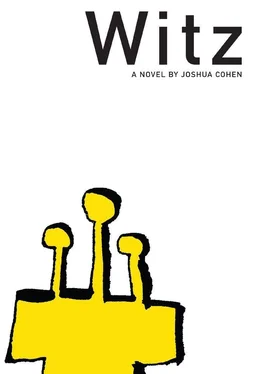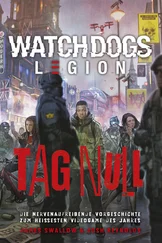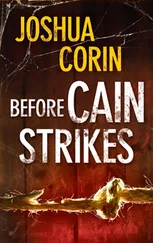In the eye of the Shalom, in the very mouth of peace, B stands still through the storming, the weather unnamed and unnamable, having held fast to the wheel with one hand, with the other at the ribbing of His stomach, the ropes of flesh taut with hurt that wrest Him in, still sickened. To survive, and to rejoice in your own survival: to open your mouth to the last lingering patter, to open your eyes once shore’s distanced behind you, to catch dew upon your lashes, manna’s fallen balm. And then into the slowed heart of this quiescence, this lulling, ship’s loll, to be hit with one last and ferociously whiplashing force of night’s wind, a remnant, a reminder of the darkness left behind and yet in front of you, too — and, flying across that sky a fish lands on the deck, at the forecastle, the fallen castle, amidships, who knows, not me, I don’t care. Which fish don’t ask me either, whether kosher or not, only that it flips, gives a flop, a silver sliv of ichthys out of water off land, over and into a ship that goes forward while on a ship there’s nowhere to go, that’s what I’ve got — it goes onto the planks of the deck netted in kelp to hide its nakedness from the blush of the clouds.
B stoops over, scoops it up in His hands, it squeezes out, pops a plop, flubs on the deck, paddles planks. He stoops over again, scoops and again it wriggles free to what has to be its death, scaling the skin from His hands. And finally, with hands hardened with strength enough to fist it dead Himself were it a weaker fish and not a fisher of sorts itself, He bends and bows and holds it tightly, then rights Himself in pain against the slice of its fins. A slitting, the gut of His palm. Then, steadying against the ship’s pitch, its scuppering swish, holds the fish lip to mouth, staring depth into its one good mush of eye.
Nu, the fish says, after a moment graved gray within the jellied slough of its socket, vos machst du …what’s your problem, I’m busy; hymn, I’ve got a two o’clock with a hot current — no seriously, what can I do you for? and when there’s only silence amid the winds, with the stump of His tongue salted to tack, a stiff and soundless flag, it gives out with an anything but fishy, fluenty, Oy! it’s a goyische kopf I’m dealing with here, all the luck — alright already, so I’m a prince, what’s it to you…then spouts at Him, up, under His glasses and into His eyes, and it stings like watery fire.
Three wishes you putz, mamash, the emes, but be quick about it.
He’d like to take His glasses from His face and wipe them and His eyes but how when you’re cradling such chub.
Genug, hurry up, I don’t have all day — what do you want, that I should swallow you…hahaha, and it coughs a gurgly bubble — joking aside, who has the time…your wish, it’s my command; you name it, it’s yours, simple as that, sof pasuk, pashut.
Work with me here! You’re new at this. I can tell, but I won’t. Ken zeyn, here’s the deal. I grant your wishes and, in return, you throw me over the side. Or else, keyne hora, and it winks that one appreciable eye, you’re out of luck, and I die of exposure. Maybe you’ll be one of the righteous, a tzadik — just place me in the water from a porthole, lower me down from the what do you call it, the gunwale, efsher…the last goy almost ripped my gills with his toss.
You with me? Farshteyn?
The fish flicks its tail. Wish I could help you, but it’s not mine to wish…
To tongue for a tongue, how I’m futzed.
Listen, I’m no prophet, no rebbe soothsayer…nit heint, nit morgen, what’s that they say, noch nicht — I’m only a prince who went wrong…
B nods in sad understanding and then, a dearth of them say three steps running rail to railing to put a pretense of momentum behind His throw, gives a sissying heave, mocking a hurl in return of the fish overboard, its sterling arc disappearing under the surface, a watery veil; then, with tailspray wholly disproportionate to its size, and perhaps, too, a little too late, soaking Him anew, as if to further mortify, if anyone would ever happen on deck, and if not, then in the eye of His God. The sun, a beacon of light cresting His head on its way to set yet again. A gloriole. To wait out the remainder of His passage, hanging Himself out on the rigging to dry, knot after the moon’s, His body an uncertain sail. To ship forward, though, without any idea of remainder, of passage, of future, and so denying any navigation, doubtful of any aground upon which to run, minding only the water until, having almost forgotten the very ideal of land, its ancient blind and deaf captain that is time, He arrives at doubt, which is itself without shore: denying the presence of a waterless world, a world that’s hard to the touch, that’s rough, too, and that when knocked knocks back ever harder.
At this, the ship — as if questioning its very substance — hits, slams, and He falls over the railing, tumbling into the air as the hoopy heap bumps, bucks then, rollickingly, steadies itself against a slip of wood drifting…on which He lands, from which He rises — a castaway from a ship wrecked on the shore itself for purposes of convenience and yet still, despairing, scared. Without romance, no liberate welcome. Only a pier, another port, another older here — it’s been a while, B, you’re next. To further image this disembarkation, corrigendum corrupting, we might offer this: that water cannot be stamped, but that land can be, and faces, and paper, too, a passport of His marked in the reddest available ink, predated beyond all comprehension. As for the land itself — it’s stamped with Him, arrived if only to fade…
O gather all ye geography mavens, ye country collectors, and experts on topos, habitus hoarders, connoisseurs of blending, masters of the hide…hearken ye sons of inconspicuousness, ye gods of lyinglow — languages are yours, borders our birthrights, to cross into evermore outcast estates…I welcome you to Polandland, Shalom, dwell as you may. Name, please, Date of Birth, then Country of Origin. At the slips and stations around Him, there’s a mess of muster, of unmarked cargo being roustabouted into endless trains routed to the furthering gate. Thieves with oily hands and twitchy eyelids, made gypsies of necessity wanting only for night’s stealth. An examiner of imported “produce.” Disbursing half into his pockets for the wife. Hutched, hunched, an interrogator who already knows, but wants to hear you think (anything you answer will sound like a question — clasp hands, pray for deportation at best)…gabbly groups too afraid to address their fear to an official nowhere to be found uniformed the same. Upon penalty of what again, the windy confiscation of cries.
A heelshaped barrel they’re unloading from His ship drops and breaks, the staves pop off like an explosion, but it’s empty, there’s nothing inside and the pallets, they’re lonely for schlepping.
A woman leads a group (young): splinters of strangers gathered out on the dock. She says to them, This was the kind of ship they used. To immigrate. To emigrate. Anyone remember which? We just had it brought in. We shipped in a ship. Just this morning. This is how they got away — back before aeroplanes, remember?
B’s ship’s being boarded, condemned.
With a hand hot in His pocket to keep guard over what wad there and with His suitcase held in the other, He goes. Where a chalkcircle praying oneliners for the weather to stop, how it’s followed Him here even worse. Where a chamfered streetcorner and told just to wait. A night, a day. Where a whore’s room He’s renting from her and for her, and which He quits after only one night, leaving His deposit behind but taking the room with Him, hung around His neck on a rope of her braids, hiding the shame of His sex…Polandland, historically where. While many of our scholars have offered up the image, famous enough to have become truism, Edenic enough to have fallen from favor, of the snake, which consumes itself and yet like the bush inherited from its gardened tree is never consumed, its tail to mouth poisoning, others have settled on a like form, more felicitous because nourishing, because sustaining, enabling, this image of our bread, daily broken. A bagel He’s in, or so they suggest in this leavening of history, Him baked deep within that circling circle forever void…a great onion and garlic and sesame and poppyseed salted snake tailing itself, and then swallowing — the eternally returning Everything varietal, the glutinous fruit of Viennese merchants first made for and presented to Polandland’s King in thanks for his help in fighting the Turks out of Austria — its name from an old German word for stirrup, Bügel , in honor of Jan III Sobieski’s great horsemenschip, in recognition of the shape of the thing: stick your foot in its mouth, then ride off into the sunset…Him atop less a kingly steed than a sagged, stickribbed lowly roan (He’s renting off a gypsy thief, a pierside hustler in cheap dark denim), His bügel more like tourist-traps, to hold Him high while the wind empties His pockets, gusting through the holes. As arranged at the port, this horse with goldteeth — with its gypsy leading with the horse’s teeth dugout, stuffed into his own kisser — it’s leading Him inland, ever deeper, and marketed ever darker, too, what with the sun’s set toward the west…where, headed unto the mythical Souvenir Stand, just over the mountain yonder, there to shop for a store of local specialties, a wide selection of indigenous folk art, Handwerk’s kitschy dreck, tshirts hung with medals unearned, dolls inside dolls, matrioshky they’re called giving way after their disappointing smallest to an emptiness maternal it’s impossible not to feel in these parts, the numbly dead, the unmade. And then further…with His gypsy leaving Him at a wall, at a gate, an incredible inroading — disappearing after the money’s gone, with the horse gone, too, and with His suitcase in its mouth, that and the bundles and bags of His purchases, keepsakes kept safe from Him: left alone, without tikvah, that’s hope. To wander east down a narrowing of streets, a muddle of ways, cuts short and long, all huddling to this one wide street, a vast opening eastward toward the void at middle, always the hole at center’s core — the Square wherever this is, I’m never sure, just shocked…without language. Consonants stuck in the craw, a mouth shaped like a vowel, and speechless.
Читать дальше












